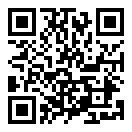Pages:
9-20
Receive Date: 2025/12/08
Accept Date: 2025/12/08
Abstract:
Abstract
Throughout history, human beings have always made various interventions in nature and have subjugated the forces of nature by using their knowledge and power. With the increase in man’s understanding of the secrets of creation, the possibility of their intervening in the natural structure of creatures has also doubled. Given the fact that all creatures are considered signs of God and manifestations of His wisdom, power, knowledge, management, and will, what is the explanation for human interventions in creatures from a theological point of view? By examining the most important traditional and modern methods of creating changes in the structure of beings, the following article explores the theoretical approach of the thinkers in great divine religions. The results of this research show a preference for the approach of the permissibility of longitudinal intervention and the impermissibility of transverse intervention in the natural structure of creatures from the point of view of Islam. In other religions, although there is a difference in the permissibility or impermissibility of intervention, the weak presence of these religions in the human social arena, the acceptance of the instrumental role of nature for humans, and as a result, the permissibility of any intervention in the natural structure of creatures is made easy for the followers of these religions. The research method is descriptive-analytical.
چکیده و کلیدواژه فارسی (Persian)
Title :رویکرد نظری ادیان به دستاندازی بشر در ساختار آفرینش موجودات با تأکید بر شیوه شبیه سازی
Abstract:
بشر همواره در طول تاریخ حیات خود به تصرفات مختلف در طبیعت اقدام کرده و با استفاده از علم و قدرت خود قوای طبیعت را مسخر خود قرار داده است. هرچه شناخت انسان از اسرار آفرینش افزایش یافته، امکان تصرف او در ساختار طبیعی موجودات نیز مضاعف شده است. با توجه به اینکه همهی موجودات، نشانه های الهی و مظاهری از حکمت و قدرت و علم و تدبیر و ارادهی او بهشمار میروند، از منظر دینشناختی تصرفات بشر در مخلوقات، چه تبیینی دارد؟ نوشتار پیشرو با بررسی مهمترین شیوههای سنتی و نوین ایجاد تغییر در ساختار موجودات، رویکرد نظری اندیشمندان ادیان بزرگ الهی را مورد کاوش قرار میدهد. حاصل این پژوهش ترجیح رویکرد جواز تصرف طولی و عدم جواز تصرف عرضی در ساختار طبیعی موجودات از نظر اسلام است. در ادیان دیگر نیز هرچند در جواز یا عدم جواز تصرف، اختلاف وجود دارد، ولی حضور کمرنگ این ادیان در عرصه اجتماعی بشر، پذیرش نقش ابزاری طبیعت برای انسان و در نتیجه جواز هرگونه تصرف در ساختار طبیعی مخلوقات را برای پیروان این ادیان هموار کرده است. روش پژوهش، توصیفی ـ تحلیلی است.
References:
- اسلامي، سيدحسن، 1386، شبيهسازي انساني از ديدگاه آيين کاتوليک و اسلام، قم، دانشگاه اديان و مذاهب.
- افروغ، عماد، 1398، عامگرايي توحيدي و حق انسان، قم، دانشگاه اديان و مذاهب.
- ايماني خوشخو، محمدرسول، 1390، اخلاق ژنتيک از ديدگاه قرآن و اهلبيت، قم، مؤسسة آموزشي و پژوهشي امام خميني.
- ببران، صديقه، 1386، تغيير اقليم، چالش زيستمحيطي قرن بيست و يکم، تهران، پژوهشکده تحقيقات استراتژيک مجمع تشخيص مصلحت نظام.
- جواديآملي، عبدالله، 1386، اسلام و محيط زيست، قم، اسراء.
- حکمتنيا، محمود، 1396، «تغيير و ساخت و تفکيک آن از شناخت بهعنوان راهبرد تحقق علوم انساني اسلامي»، در: مجموعه مقالات کنگره بينالمللي علوم انساني اسلامي، ش 1، ص 309ـ332.
- دباغ، سروش، 1387، آئين در آينه، چ سوم، تهران، صراط.
- سيدامامي، کاووس، 1389، اخلاق و محيط زيست (رهيافتي اسلامي)، تهران، دانشگاه امام صادق.
- طباطبائي، سيدمحمدحسين، 1411ق، الميزان في تفسير القرآن، بيروت، مؤسسة الاعلمي للمطبوعات.
- عليزاده، ليلا، 1388، «اهداي ترکيبي گامت و رحم اجارهاي و حقوق والد ـ فرزندي»، اخلاق و تاريخ پزشکي، ش 1و2، ص 12ـ20.
- العوضي، عبدالرحمن عبدالله، 1420ق، روية اسلاميه لبعض المشکلات الطبية المعاصرة، كويت، منظمة الاسلامیه.
- فاضل لنکراني، محمدجواد، 1389، بررسي فقهي تلقيح مصنوعي، قم، مرکز فقهي ائمه اطهار.
- محقق داماد، سيدمصطفي، 1393، الهيات محيط زيست، تهران، مؤسسة پژوهشي حکمت و فلسفة ايران.
- مطهري، مرتضي، 1392، ولاءها و ولايتها، چ هجدهم، تهران، صدرا.
- مکارم شيرازي، ناصر و ديگران، 1374، تفسير نمونه، چ سي و دوم، تهران، دارالکتب اسلاميه.
- مککبين، بيل، 1385، پايان طبيعت، ترجمة مهدي عباسزاده فتحآبادي، چ دوم، تهران، کتاب صبح.
- نصر، سيدحسين، 1384، انسان و طبيعت، ترجمة عبدالکريم گواهي، چ سوم، تهران، دفتر نشرفرهنگ اسلامي.
- نکوئي ساماني، مهدي، 1397، تصرفات بشر در خلقت، قم، اديان.
- نوبخت، محمد، 1385، شبيهسازي انسان، چيستي، کيفيت، بايدها و نبايدها، تهران، آموزش و پرورش استان تهران.
- نوري، رسول، 1392، شبيهسازي انسان، قم، مجمع جهاني شيعهشناسي.
- Missmer, R.S., 2005, Hornstein, demand and preferences in an infertility population.
- Samner, A.T.Et Al, 1971, Distinguishing between x,y , and yy-bearing human spermatatozoa by fluorescene and content, New Nature Biology.
Cite this article:
RIS
Mendeley
BibTeX
APA
MLA
HARVARD
VANCOUVER
APA | MLA | HARVARD | VANCOUVER
, Mustafa, Faryab, Mohammad hosein.(2025) Religions’ Theoretical Approach to Human Intervention in the Structure of the Creation of Beings with Emphasis on the Simulation Method. Marifat, 31(8), 9-20
APA | MLA | HARVARD | VANCOUVER
Mustafa ; Mohammad hosein Faryab."Religions’ Theoretical Approach to Human Intervention in the Structure of the Creation of Beings with Emphasis on the Simulation Method". Marifat, 31, 8, 2025, 9-20
APA | MLA | HARVARD | VANCOUVER
, M, Faryab, M.(2025) 'Religions’ Theoretical Approach to Human Intervention in the Structure of the Creation of Beings with Emphasis on the Simulation Method', Marifat, 31(8), pp. 9-20
APA | MLA | HARVARD | VANCOUVER
, M, Faryab, M. Religions’ Theoretical Approach to Human Intervention in the Structure of the Creation of Beings with Emphasis on the Simulation Method. Marifat, 2025; 31(8): 9-20
 / Assistant Professor of Islamic Speculative Theology (Kalam), the IKI / faryab@iki.ac.ir
/ Assistant Professor of Islamic Speculative Theology (Kalam), the IKI / faryab@iki.ac.ir



